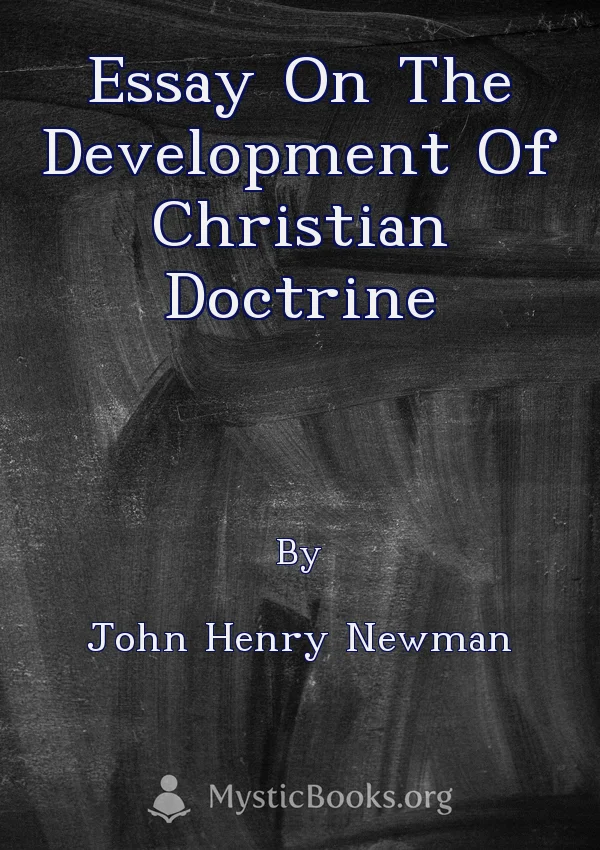
Essay on the Development of Christian Doctrine
'Essay on the Development of Christian Doctrine' Summary
John Henry Newman's *Essay on the Development of Christian Doctrine* was written in the context of his own journey from Anglicanism to Catholicism. Concerned by the perceived changes in doctrine within the Roman Church, Newman sought to demonstrate how the Church's teachings had developed organically over time, remaining true to the original faith. Newman argues that doctrine doesn't simply remain static but unfolds and clarifies over centuries, akin to a seed growing into a mature plant. He identifies key principles of development, including the notion that development must be consistent with the original seed of the faith and must be organic, meaning that the changes are rooted in the inner logic of the doctrine itself. Newman uses historical examples to illustrate how key Catholic doctrines like papal authority and the veneration of saints emerged naturally from earlier Church practices and teachings. He aims to convince both Catholics and Anglicans that the Catholic Church, despite its apparent differences from the early Church, has remained true to its fundamental core and that development is a natural and necessary process in the Church's life.Book Details
Language
EnglishOriginal Language
Published In
Genre/Category
Tags/Keywords
Authors

John Henry Newman
England
John Henry Newman was an English theologian, academic, intellectual, philosopher, polymath, historian, writer, scholar and poet, first as an Anglican priest and later as a Catholic priest and cardinal...
Books by John Henry NewmanDownload eBooks
Listen/Download Audiobook
- Select Speed
Related books

The First American Sister of Charity, Elizabeth Blayley Seton by John Clement Reville
This is a picturesque and moving account of the life and work of Elizabeth Ann Bayley Seton (1774-1821), the first native-born citizen of the United S...

David and His Friends: A Series of Revival Sermons by Louis Albert Banks
This collection of 31 revival sermons preached by Louis Albert Banks in 1900 provides inspiration and guidance for winning souls to Christ. Banks emph...

Bible (Reina Valera) NT 01: Mateo by Reina-Valera
The Gospel of Matthew, written in the first century by the apostle Matthew (formerly known as Levi), aims to demonstrate Jesus as the Messiah promised...

A Practical Treatise of Fear by John Flavel
This delves into the profound complexities of fear, offering readers a unique perspective on this universal human emotion. With captivating prose and...

From Ritual to Romance by Jessie Laidlay Weston
From Ritual to Romance is a book written by Jessie L. Weston. Weston's book is an examination of the roots of the King Arthur legends and seeks to mak...

Criterio by Jaime Balmes
This book explores the nature of human reason, passion, and virtue. It argues that reason is essential for understanding the world and making good dec...
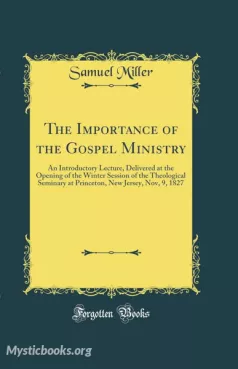
The Importance of the Gospel Ministry by Samuel Miller
In his book The Importance of the Gospel Ministry, Samuel Miller argues that the ministry of the gospel is the most important work in the world. He wr...
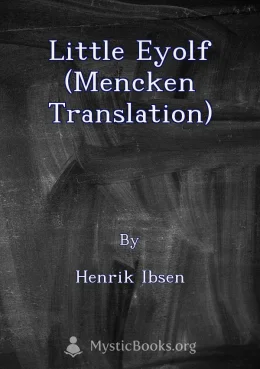
Little Eyolf (Mencken Translation) by Henrik Ibsen
Little Eyolf is a play by Henrik Ibsen that explores the complex and often painful dynamics within a family grappling with loss and grief. It delves i...
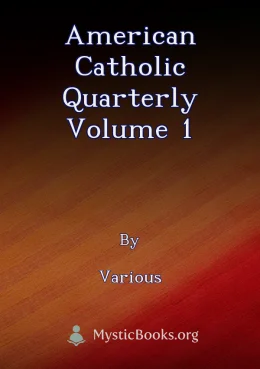
American Catholic Quarterly Volume 1 by Various
“American Catholic Quarterly” was a magazine published from 1876 to 1924. Founded by Herman J. Heuser and James A. Corcoran, the magazine focused on a...
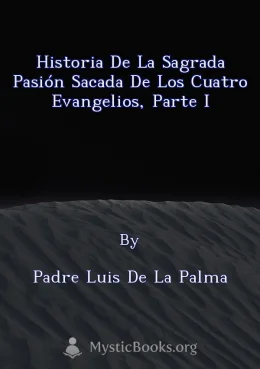
Historia de la Sagrada Pasión sacada de los cuatro evangelios, Parte I by Padre Luis de la Palma
This book is a detailed and moving account of the Passion of Christ, based on the narratives of the four Gospels. It is written in a meditative style,...
Reviews for Essay on the Development of Christian Doctrine
No reviews posted or approved, yet...